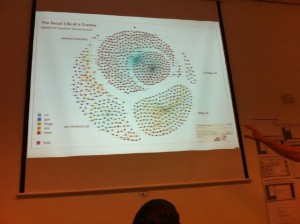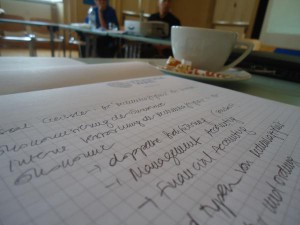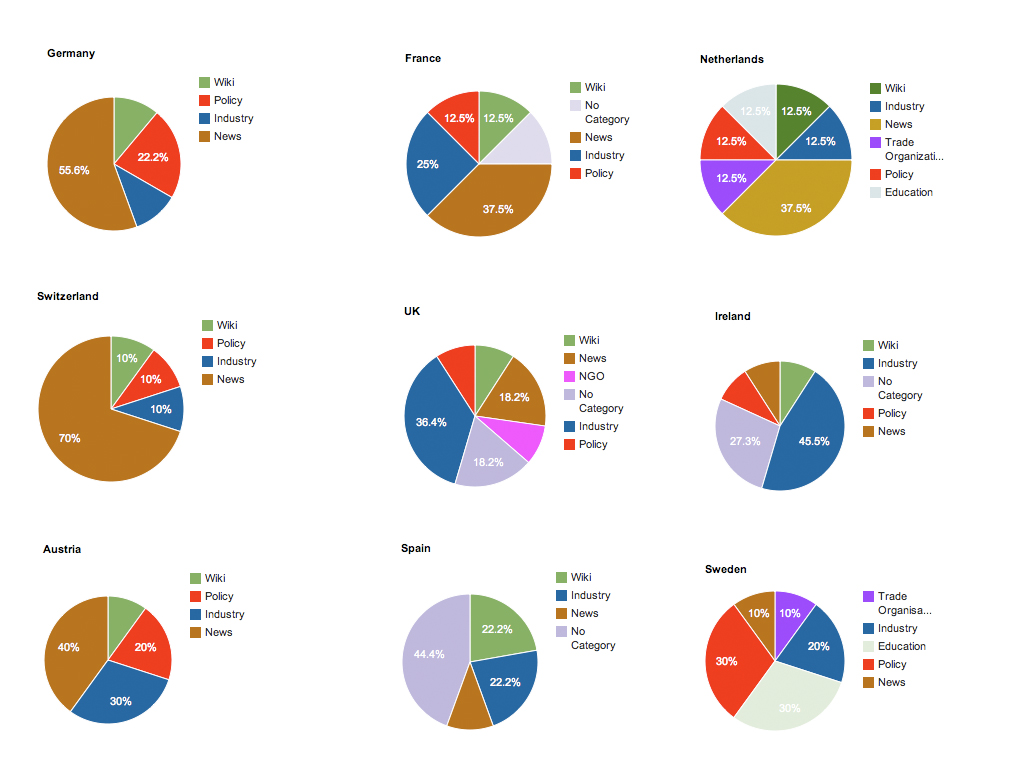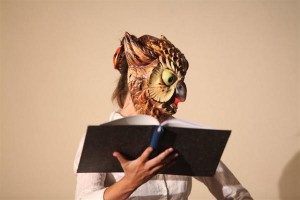I’ve attended two summer schools in the last three weeks and it was fun. Both the digital methods summer school (Amsterdam) and the Marie Jahoda summer school of sociology (Vienna) were highly inspiring events with great participants! The differences were striking though. And reflected the spirit of two different cities and two different academic cultures.
photo credit left: Marieke van Dijk — right: Monica Titton
The purpose of the digital methods event was to learn how to conduct Internet research by following the medium and its natively digital objects. If you want to investigate search engine results, use and learn from Google and its way of functioning, for example. Employ and build on search query data instead of creating artificial user search experiments was one of the messages. How to investigate and theorized “big data” was thus one central issue debated, in Richard Rogers´talk most importantly. What implications the use – and dependency on – algorithms and commercial tools such as Google or Facebook triggers was another interesting aspect raised by Noortje Marres. Besides theoretical discussions – such as the “salon” on Bruno Latour and David Berry moderated by Mark Tuters – we were motivated to work on actual projects. The main part of the summer school was organized around research investigating issues/ controversies in search engine results, on social networking platforms, Wikileaks and other “web spheres”. Here are some maps we developed on the biofuel controversy in Google results in different European countries:
People were thus gathered around computers and tried to make use and sense of the great variety of methods created by the DMI (digital methods initiative) team, but also the network visualization tool Gephi, that Bernhard Rieder presented, and the text coding software DiscoverText developed by Stu Shulman. Thanks to all of you for the great tools and advice!!!
It might be a coincidence that the highly digital summer school took place in Amsterdam – a city concerned with open government data, participatory architecture and urbanity & technology. But it might also reflect the tight entanglement of urban vibes and academic cultures. In Vienna the cultural heritage is central. The first district with its beautiful architecture preserves the empire of the last century. Accordingly, the Viennese summer school took place in a “festive room” mirroring the old charme and elegancy of the University. Paper and pencil instead of hashtag and wiki. The summer school was organized around lectures and presentations instead of laptops and projects. Even though I only participated three days out of six I saw great talks on markets and organizations in the tradition of German intellectual circles. Sophie Mützel talked about the sociology of markets and Frank Hillebrandt elaborated on culture and economy, for example. Further, I learned a lot about economic sociology in a number of great PhD projects from Austrian and German graduate students. That made me realize how interdiscplinary my own work got over the last years, where I was strolling from sociology, science and technology studies, Internet research to digital humanities. I was thus very happy that I got truly great feed-back on my search engine project and reading tipps from the summer school crowd, and especially Sighard Neckel (e.g. “the new spirit of capitalism” by Boltanski and Chiapello, “global complexity” by Urry or “market devices” by Callon, Millo and Muniesa). I do really hope that our paths will cross again in the future!
If you want to learn more about the Viennese summer school I recommend listening to the Ö1 broadcast “Dimensionen” on 26 July 2011, 19h05 (web radio here). Further, I really hope you get to see the “Erschießt Sie – eine Finanzkrisenoper“, which is a theatrical performance of interview material on brokers & the economic crisis based on the book “Strukturierte Verantwortungslosigkeit. Berichte aus der Bankenwelt” (Claudia Honegger, Sighard Neckel und Chantal Magnin). It is a clever and hilarious piece of work!
(photo credit: Summer School)




